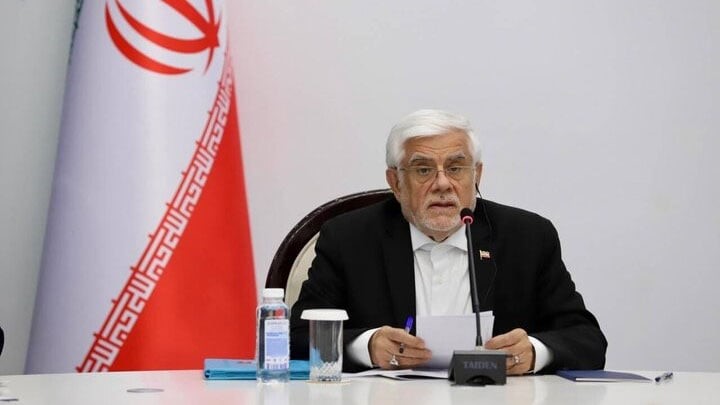Vice President Mohammad Reza Arif criticizes US approach to negotiations, while also ruling out any talks with the ‘Zionist regime.’

News Desk
TEHRAN: Iran’s Vice President Mohammad Reza Arif reaffirmed the country’s uncompromising position on diplomacy, declaring that while Tehran remains open to negotiations, it will not bow to “unnecessary demands” or accept any preconditions imposed by foreign powers. His remarks, delivered in an interview with Iranian media, underscored Tehran’s insistence on equality and mutual respect in any future dialogue with global counterparts.
Arif’s comments carried a pointed rebuke of the United States, which he accused of maintaining a pattern of hostility toward Iran even during past diplomatic engagements. “The Iranian nation will not tolerate us succumbing to pressure and accepting America’s illegitimate wishes,” he said, portraying the U.S. approach as both coercive and hypocritical. He argued that Washington’s current strategy — demanding Iranian concessions before talks can even begin — was unacceptable. “We will not accept this method,” he declared firmly, signaling that Tehran’s patience for one-sided diplomacy had run out.
The vice president drew a further line in the sand by ruling out any possibility of negotiations with Israel, referring to it as the “Zionist regime.” This categorical rejection aligned with Iran’s long-standing foreign policy stance and reflected the entrenched ideological divide that continues to shape Middle Eastern geopolitics.
Arif’s statement came amid heightened regional tension and global uncertainty surrounding the future of nuclear diplomacy. His remarks appeared designed to project strength and unity at home while reiterating Iran’s readiness for “fair and respectful” talks — provided they are free of threats or conditions.
Observers noted that Arif’s tone echoed Iran’s broader strategic messaging: a blend of cautious openness and defiance rooted in national sovereignty. The timing of his statement also resonated beyond Tehran, as regional powers including Pakistan have similarly been asserting their own national security imperatives in ongoing diplomatic engagements with neighbors and major global actors. For Iran, Arif’s words signaled both resistance to external coercion and a willingness to engage — but only on its own terms.


